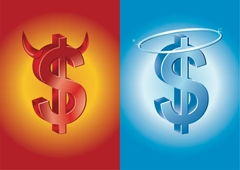Currently Empty: $0.00
As reported in our recent blog post, a vaping flavor ban was passed by the California legislature and signed by Governor Newsom on August 28th of this year. The ban was set to take effect on January 1st, 2021, and would have prohibited the sale of flavored vape juice at brick and mortar stores while leaving online sales untouched. It also banned the sale of menthol cigarettes–and that looks like it may prove to be the bill’s undoing.
On October 9th, a lawsuit was filed by a number of Big Tobacco companies, including Phillip Morris and R.J. Reynolds among others. The suit argues that the ban is invalid because the FDA prohibits states from creating regulations that are “different from, or in addition to” those at a federal level when it comes to products that fall under regulation by the Family Smoking Prevention and Tobacco Control Act. Because the FDA allows flavored vape juice, the state of California must also the argument goes.
Additionally, the lawsuit challenges the ban on the basis of something called the Dormant Commerce Clause which prohibits states from discriminating against or excessively burdening interstate commerce.
But here’s where things get interesting. When it comes to Big Tobacco, it has a million ways to get its way–armies of lawyers, mountains of money, and the ability to set up shell organizations to push the desired agenda.

On September 30th, 2020, just nine days before Big Tobacco’s lawsuit was filed, a non-profit organization was registered in San Rafael, California, just a half hour drive from Kai’s Virgin Vapor.
The innocuously named “California Coalition for Fairness” might well have been renamed the “Ain’t No Way Big Tobacco Will Let California Ban Menthol Cigarettes Cabal.”
Now, call me cynical but it seems highly unlikely that the true aim of this non-profit was actual “fairness.” It was all about protecting Big Tobacco profits and, if California had left menthol cigarettes out of the flavor ban, there’s little doubt in my mind that the Coalition wouldn’t have given a damn about fairness to California vapers.

In any case, the newly minted non-profit sprang into action and, within a head spinningly short nine weeks, delivered the signatures of over ONE MILLION Californians to county election officials demanding that the bill be stopped. The Coalition actually overshot, since only 623,212 signatures are required to halt enactment of the bill.
“Banning the sale of FDA-authorized alternatives to adult cigarette smokers will cause serious and lasting damage to tobacco harm reduction goals,” said the press release put out by the Coalition to announce the delivery of the required signatures.
Yup, Big Tobacco actually had the gall to wrap its true motives in concern for setting back “tobacco harm reduction goals.” But it didn’t stop there. Big Tobacco also telegraphed concern for “people of color” while stirring up support by blaming the bill for unfairly benefiting “the wealthy.”
“SB 793 criminalizes the sale of menthol cigarettes preferred by people of color and creates special exemptions for products preferred by the wealthy—allowing the sale of expensive flavored cigars and pipe tobacco, in addition to hookah, to remain legal,” the press release continued.

How many wealthy people do you think sit around smoking cherry flavored cigars with their cognac? My guess is, “Not that many.”
Moreover, if “fairness” were Big Tobacco’s true aim, then surely they would have expended the same amount of effort to overturn the flavored vape bans in New York or New Jersey or Rhode Island or Chicago. But, nope, nothing. Could this be related to the fact that these locales exempted menthol cigarettes from their flavor bans?
The only other state with a flavor ban is Massachusetts but, yet again, menthol cigarettes received special treatment. They can still be sold, albeit only at restricted locations, and, while the ban on flavored vapes went into effect the day the bill was signed on November 27, 2019, the bill gave menthol cigarettes a six month window before they had to comply.
The moral of the story: money talks. Big Tobacco was able to fund a non-profit to the tune of $21 million dollars and gather over a million signatures within the space of a couple of months to successfully freeze the flavor ban of the most populous state in the union. Even if the halt to the flavor ban is only temporary, Big Tobacco should see a hefty return on its investment. The Campaign for Tobacco-Free Kids estimates that just delaying the flavor ban for 22 months will earn Big Tobacco another $1.1 billion in sales.
While, in this instance, we’re happy with the results, it’s still dismaying to note how loudly the voice of money speaks in this country. If Big Tobacco’s interests hadn’t intersected with those of vapers, there’s little doubt that the quiet cry of vapers in the state losing their freedom of choice would have gone unheard.
Try our premium organic vape juice today!
